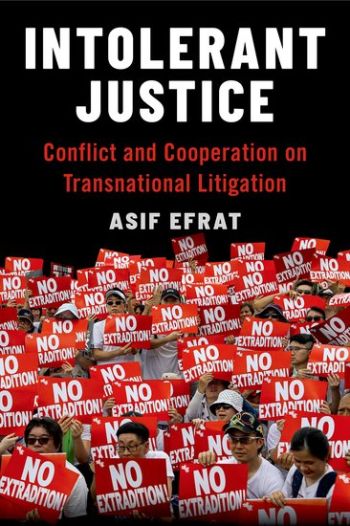
In a globalized world, national legal systems often face dilemmas of international cooperation: Should our citizens stand trial in foreign courts that do not meet our standards? Should we extradite offenders to countries with a poor human rights record? Should we enforce rulings issued by foreign judges whose values are different from our own? Intolerant Justice argues that ethnocentrism—the human tendency to divide the world into superior in-groups and inferior out-groups—fuels fear and mistrust of foreign justice and sparks domestic political controversies: while skeptics portray foreign legal systems as dangerous and threatening, others dismiss these concerns.
The book traces this dynamic in a range of fascinating cases, including the American hesitation to allow criminal trials of troops in the courts of NATO countries, the dilemma of extradition to China, and the European wariness toward U.S. civil judgments. Despite the growing role of law and courts in international politics, Intolerant Justice suggests that cooperation among legal systems often meets resistance and shows how this resistance can be overcome.